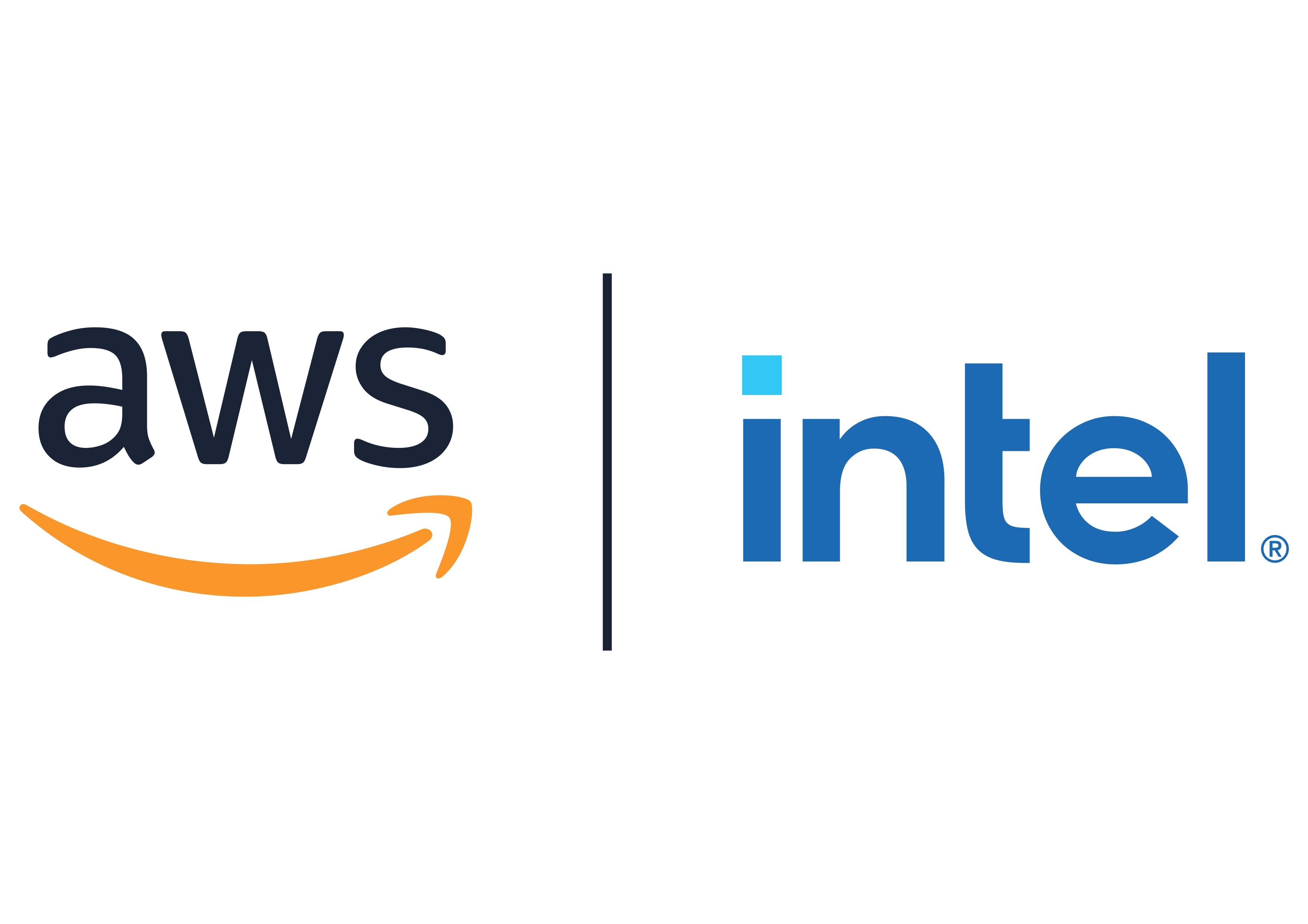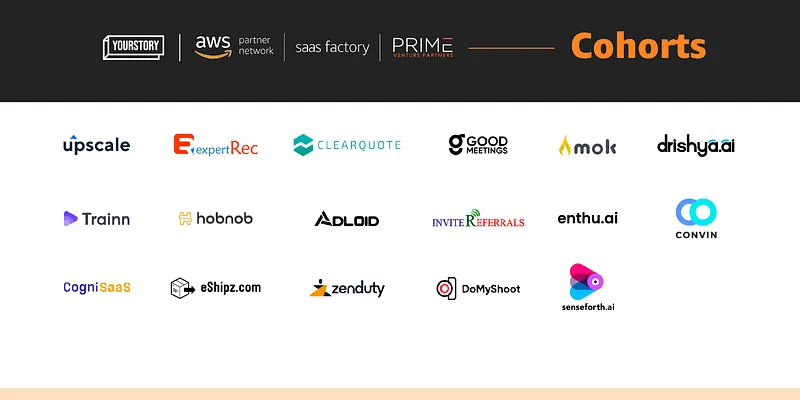
AWS | Intel
View Brand PublisherWhat does it take to build and sustain a SaaS company? Find out here at SaaS Central 2021
The five-week action-packed programme aimed to accelerate the growth journeys of SaaS startups with deep insights on product management, fundraising, scaling, and sales.
“When one is running a company, he or she should always consider these questions – Am I solving a real problem for customers? Do I solve it better than anyone else? And finally, do I have the right sales and go-to-market engines?,” asked Phil Davis, Managing Director - Asia Pacific and Japan, Amazon Web Services (AWS).
Phil was speaking at the launch of the second edition of SaaS Central presented by AWS and Prime Venture Partners, in association with YourStory. 17 startups participated in the five-week online programme that saw 11 sessions on product management, go-to-market, and industry connect.
Speaking about the programme, Gaurav Arora, Director and Head of Startup Business, Asia Pacific and Japan, AWS, said, “With the majority of India’s SaaS unicorns building on AWS, we know that going global is one of their primary goals right from the start. We developed a range of sessions to touch upon all the major milestones they’ll encounter along the way, from journey mapping and personal development to product management and pitching.”
Phil, along with Amitabh Nagpal, Head of Startup Ecosystem, India (AWS) and Amit Somani, Managing Partner, Prime Venture Partners launched the programme on November 29, 2021. While Amitabh spoke about the programme’s objective to lend clarity to the needs of early-stage SaaS startups looking to scale globally, Phil shared his experience in building startups, how multiple rounds of funding helped them grow, and key learnings from his 30+ years of industry experience and entrepreneurialism.
The 17 startups of SaaS Central 2021 include:

Click here to know more about the cohorts
Speaking to the cohorts, Amit said, “The value that Indian SaaS companies are creating and the potential they have is tremendous. Investors across the world are carefully trying to gauge the Indian SaaS ecosystem and its impact in the global market. This programme will help drive the next wave of growth, build new capabilities, and help these 17 startups to accelerate growth efficiently.”
The right levers to scale effectively
In a session on ‘Identifying your SaaS playbook’, Abhishek Goyal, Co-founder, spoke on the importance of playbook blueprints for a company’s foundation. “GTM playbooks can be very effectively used to narrow down the choices and help choose the best option. With playbooks, one can do the right kind of fund raising, plan the inbound and outbound sales, prioritise markets, categorise potential customers, marketing initiatives, and many more,” he said.
But ‘What are enterprises looking for?’ Startups should focus their looking glass into working backwards to start working with the customer, feels Naveen Asrani, Head of Startup Growth Initiatives, Asia Pacific & Japan, AWS. This, he said, could be achieved by having a growth strategy for the product and new product line, segmenting them into different categories and building the solution around it, keeping a check on their purchase timing, customer experience, and product-led growth.
Khadim Batti, Co-founder and CEO, spoke on ‘GTM - Thinking global from Day 1’ where he explained that while the product-market fit (PMF) journey and achieving the milestone is important for startups, they should also focus on growth strategies, designing market-fit products and lead generation as well as customer support. “Focus on key areas like content clarity, outbound, pricing clarity, pricing power, along with multi-channel growth,” he shared.
In a session on ‘Building your inside sales engine’, Pallav Nadhani, Founder and CEO, Charts enlisted the five key elements of GTM – positioning and messaging, distribution and sales, people and systems, metrics, and tactical things. He also spoke about how startups should focus on selling the benefits of the products and then talk about the features.
“While funneling down, it is important to consider metrics like pricing objective, approximate value proposition, value metric, and buyers’ persona and these in turn contribute in deciding the customer’s intention and willingness to pay,” added Shripati Acharya, Managing Partner, Prime Venture Partners as he spoke on ‘Pricing your SaaS offering’. Along with the product, he shared, customers should always be given the option to explore opportunities like annual plans, free trial, design options and share their feedback.
How can you achieve ‘Your first $1M ARR’? In his session, Anand Subbaraj, CEO, cited the example of his company and how they used different funneling strategies in different markets to achieve the first $1M ARR. “It is very important to look at the customer acquisition channels and upgrade them as and when required,” he said.
“Are you building the right product?” Starting his session on ‘Product Management’ with a question to the startups, Prime VP’s Amit Somani explains that asking this question often helps companies in identifying the issues to solve any product-related challenges. “Customer segmentation, positioning and willingness to pay, and pricing discovery are key here,” he said.
Speaking on ‘Ideal customer profile’, Shihab Muhammed, Founder and CEO, explained how with growing customer bases, revenue might not grow at the same pace. “In such cases, companies can focus on scaling the product by adding more features, and pricing the products on usage-base rather than user-base,” he shared.
Sanjay Swamy, Managing Partner, Prime VP highlighted the top three ways of successfully closing an investment pitch – making it personal, showcasing incredible and strong growth metrics, and a good demo – in his session ‘Fundraising & Storytelling’. In addition, he also spoke about demonstrating the framework of the business, phase-wise plan execution, dashboards, and the reason behind fundraising. “Demos should always be well planned and well prepared. Meeting people should be for building connections and not be used as an opportunity for raising funds,” he added.
In a session on ‘SaaS adoption pitfalls’, Akshay Patel, Principal SaaS Business Lead | Global | AWS SaaS Factory, AWS spoke about the common practices that can help companies adopt SaaS technology effectively in their companies. “The three potential ways are by increasing their knowledge about SaaS, leveraging ready-to-use resources, and engaging with SaaS experts,” he said.
In the final episode, AWS’ Amitabh explained ‘Customer success’ as the key for a company to grow organically, increase customer centricity and improve margin and efficiency. In addition to this, he said, the customer success team should consist of renewal manager, growth executive, growth hacker, support agent, and an onboarding specialist. “To succeed in customer success, one should have the knowledge of the product/ service, understanding of customer behaviour, and skills to drive the customer goals,” he shared.
Sign up for AWS SaaS Insights to stay up-to-date on news, resources, and events and also check out the SaaS on AWS webpage. A resource for both business and technical topics on how to be successful with SaaS on AWS.







